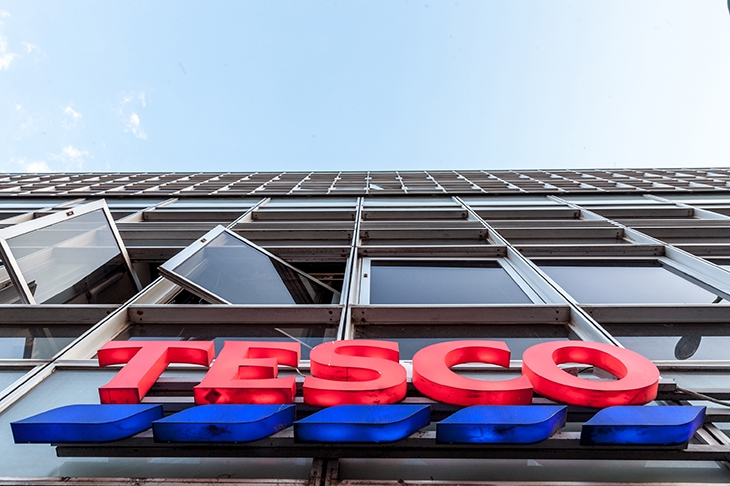How surprising to read one former Tesco chief, 82-year-old Lord MacLaurin, badmouthing another, Sir Terry Leahy. The surprise is because both were titans of their trade and Leahy has always been seen as Ian MacLaurin’s protégé: it was MacLaurin who took Tesco to the top of the UK supermarket league in the mid-1990s, then Leahy who quadrupled its sales, profits and share price between 1997 and 2011 to make it the monster we know. But Leahy also took Tesco into a disastrous US grocery venture and — according to MacLaurin, talking to the Sunday Times — started ‘the rot’ that brought the company low by 2014, leaving the blame to be taken by his own successor, Philip Clarke.
If, like me, you’re fascinated by the rise and fall of great companies, this is gripping stuff. At its nadir, I really thought Tesco might be in terminal decline as an ‘unloved, asset-heavy giant’ in a marketplace where consumers were rapidly shifting to online shopping and discount chasing. But Clarke’s successor, Dave Lewis, hired in from Uni-lever, tidied the mess, re-engineered the supply chain, focused on cheaper own brands to compete with Aldi and Lidl — and has brought profits roaring back.
The result is that many stockbrokers now rate Tesco shares a ‘strong buy’; indeed, we picked them for this column’s own UK Optimists Portfolio. Some analysts now think those edge-of-town megastores that had begun to look so redundant offer a killer advantage as online distribution centres, within easy reach of most of the population. And the same analysts think the threat from Aldi and Lidl has passed its zenith, since further acquisition of market share, particularly in the south of England, will be increasingly costly for them.
So the wheel of corporate fortune turns — and as in politics, history is rewritten by old men sniping from their armchairs.








Comments
Join the debate for just £1 a month
Be part of the conversation with other Spectator readers by getting your first three months for £3.
UNLOCK ACCESS Just £1 a monthAlready a subscriber? Log in